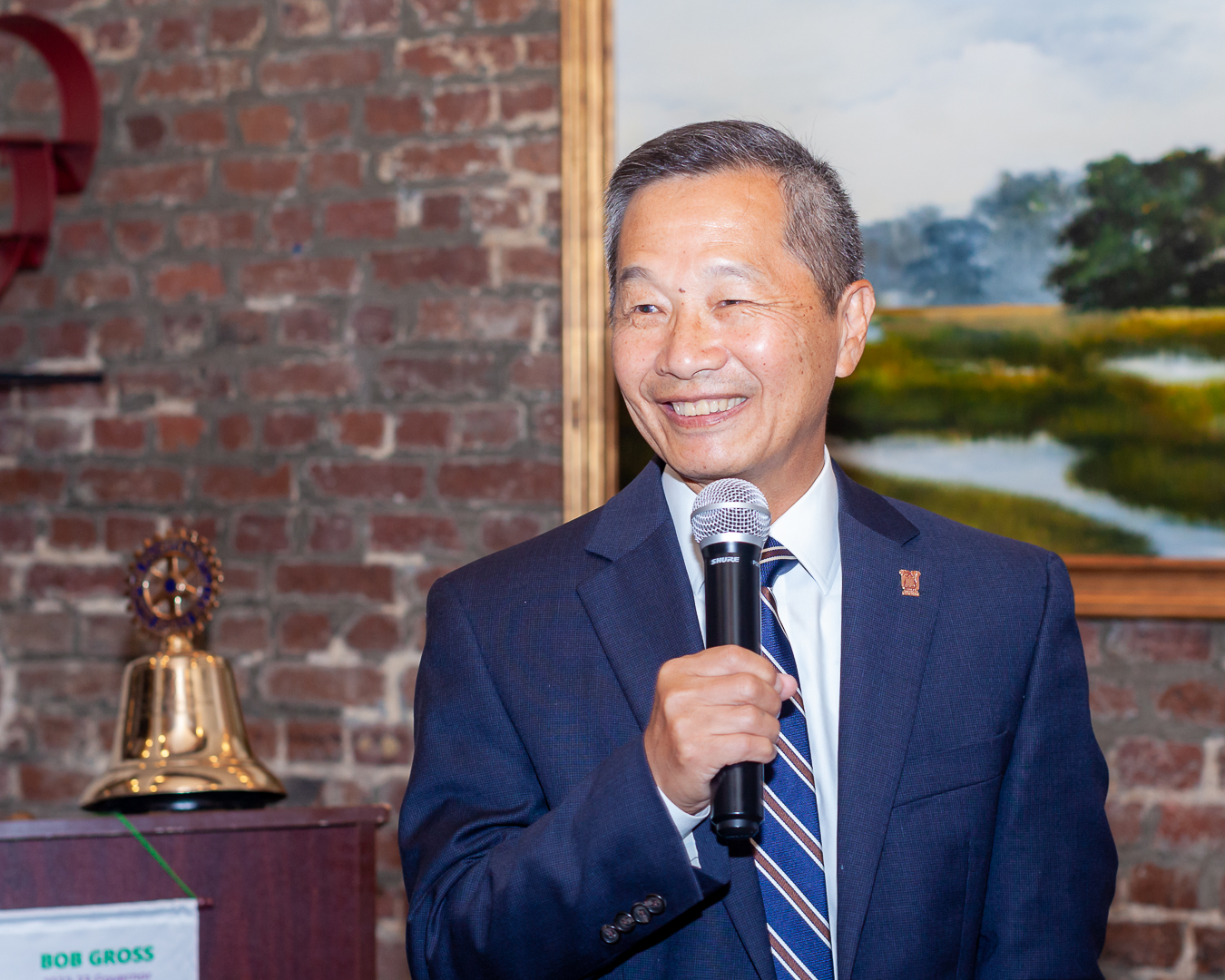Charleston in the era of Porgy and Bess
Local author and professor explores Charleston’s rich literary heritage
July 20, 2004 – – Jim Hutchisson, Ph. D., author and Professor of English at the Citadel, enlightened Rotarians this week with a unique glimpse into Charleston’s literary “Renaissance era of the 1920s and 1930s. His journey to this often overlooked time in Charleston’s history was initiated by a friend’s suggestion to research Dubose Heyward, the author of Porgy and Bess which was famously adapted as a folk opera by George Gershwin in 1935.
While Professor Hutchisson was involved professionally in many endeavors and had written books on such figures as Sinclair Lewis, he claimed that finding a good book topic was somewhat of a challenge. When his friend suggested Dubose Heyward as a subject, Hutchisson did not know much about the author, except that he had written Porgy and Bess. He knew even less about Charleston’s popularity in literary circles in the 1920s, which came to be known as the Renaissance era of
Hutchisson wrote his biography of Dubose Heyward in 2000 with research from the South Carolina Historical Society, which housed most of Heyward’s letters and correspondence. This research also revealed how Heyward was a full partner in the production, writing many of the lyrics for the songs in the opera as well as the libretto, and finding the actors and actresses to portray his characters. Porgy and Bess brought fame to

